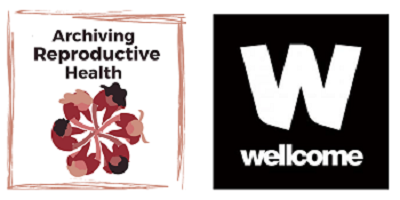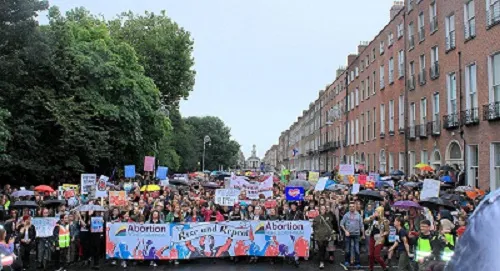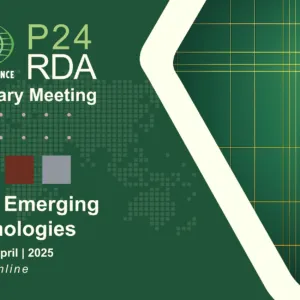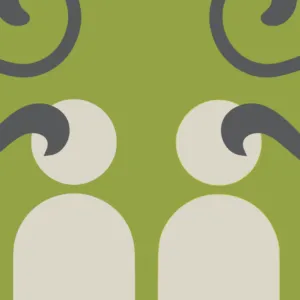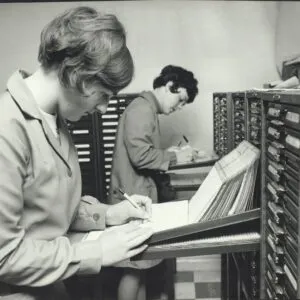The Digital Repository of Ireland is delighted to announce the launch of a series of pilot collections for the Archiving Reproductive Health project, in an online event on International Women’s Day 2022.
The Digital Repository of Ireland is delighted to announce the launch of a series of pilot collections for the Archiving Reproductive Health project, in an online event on International Women’s Day 2022.
Archiving Reproductive Health (ARH) is a project funded by the Wellcome Trust and carried out by the DRI to preserve and publish digital materials relating to campaigns for reproductive justice in Ireland, especially during the campaign to repeal the Eighth Amendment in 2018. Working with key stakeholders including the Abortion Rights Campaign, Together for Yes, Terminations for Medical Reasons, Coalition to Repeal the Eighth, and many others, ARH has gathered and preserved a selection of digital objects and research data that tells part of the story of this historic campaign.
These collections will be launched online on International Women’s Day, 8 March 2022, at 12:00pm. All are welcome to attend and registration is free at this link.
Material from the collections include a series of photographs, videos and design assets from three of the Abortion Rights Campaign’s Marches for Choice.

“Rise and Repeal” March for Choice 2016. Photo: Renee Summers
Also included are design assets and press materials from Together for Yes, the national campaign to repeal the Eighth, as well as from the Coalition to Repeal the Eighth and Terminations for Medical Reasons.

Together for Yes “Your Yes Matters” banner.

IWD March 2018 Poster. Image: Coalition to Repeal the Eighth
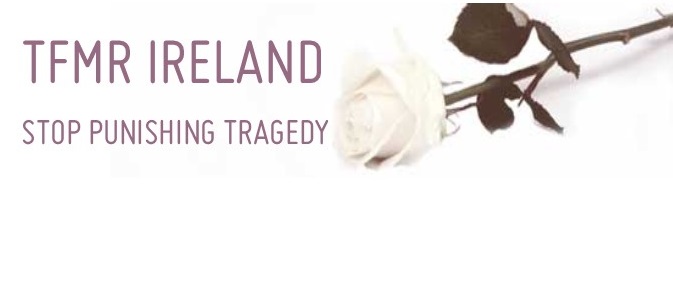
“Stop Punishing Tragedy” banner. Image: Terminations for Medical Reasons
The project is also working on the exciting and challenging world of social media preservation. Material from the popular Facebook page “In Her Shoes” will be available as part of the pilot collections.
Research data in the form of interview transcripts from Doctors for Choice and Re(al) Productive Justice Project: Gender and Disabilities, an academic project, as well as photographs of referendum campaign posters in Irish city streets in 2018 by researcher Louis Strange, and historical interviews with women’s rights campaigners in Ireland, round out this exciting series of collections.
ARH warmly welcomes stakeholders, campaigners and members of the public to attend this launch, where a brief guided tour of these important collections will be presented by Digital Archivist and Coordinator Clare Lanigan. Once launched, the collections will be available for viewing and research on repository.dri.ie.
More information about the collections below.
Collections
Abortion Rights Campaign – Marches for Choice
This collection covers three of the Marches for Choice organised by the Abortion Rights Campaign, an all-Ireland campaign for free, safe and legal abortion in Ireland, founded in 2013. ARC was one of the three organisations that made up Together for Yes, the national campaign to repeal the Eighth Amendment in 2018. The collection includes photographs and videos from the Marches for Choice held in 2016, 2017 and 2018, as well as design assets such as posters, flyers and leaflets.
Together for Yes – Publicity Materials
This collection contains public-facing material such as posters, logos and flyers created by Together for Yes, the national campaign for a Yes vote in the campaign to repeal the Eighth in 2018. Together for Yes was made up of representatives of three organisations, ARC, the National Women’s Council and the Coalition to Repeal the Eighth. The graphic design of the publicity material was designed by Language Communications.
Coalition to Repeal the Eighth – Publicity Materials
The Coalition to Repeal the Eighth is a broad umbrella organisation intended to bring together a wide range of civil society organisations that supported the repeal of the Eighth Amendment. The Coalition was one of the three organisations that made up Together for Yes. The collection includes publicity materials such as logos, images of merchandise and posters for public events hosted by the Coalition in the period 2015-2018.
Terminations for Medical Reasons – Publicity Materials
Terminations for Medical Reasons is an organisation that supports women, parents and families following diagnosis of a foetal anomaly, help destigmatise termination of pregnancy & campaign for legal change. TFMR are a member of the Coalition to Repeal the Eighth and played a crucial role in the 2018 referendum. The collection includes publicity materials such as online banners, logos and press releases from the period 2015-2018.
In Her Shoes: Women of the Eighth – Facebook posts
This collection contains links to a Facebook page where women shared their experiences of being refused healthcare, barriers to access, the experiences of travel for healthcare abroad, illegally ordering pills online, and the emotional impact of these experiences. As a resource, it shares women’s stories and allows us to learn from them as a society. The stories captured the reality for many women living under the Eighth Amendment and offered an insight into the difficulties surrounding the illegality of abortion. 622 posts from January 2018 to June 2018 are made accessible to researchers in this collection. Subject terms have been added to the posts for ease of access for researchers. Researchers are encouraged to be aware of potentially traumatic data within the posts and are advised to develop their own Self-Care Protocol while working with this dataset.
Posters and City Streets: The Linguistic Landscape of the Eighth Amendment Referendum Campaign – Photos
This is a visual collection containing 432 images of signage from the 2018 referendum on whether to repeal the Eighth Amendment. It was collected during the week before the vote itself (May 2018) and includes images of campaign posters, graffiti, stickers and banners from a number of locations across the country. These images were taken by Louis Strange as part of his PhD research into the “linguistic landscape” of the 2018 referendum campaign, which looks at the use of language in public space in the lead-up to the vote.
Physician Advocacy and Reproductive Rights in Ireland – Oral history interviews
This collection is comprised of oral history interviews conducted in 2019 by Sadie Bergen, a doctoral candidate in an interdisciplinary social science and public health program. The interviews are with current and former committee members of Doctors for Choice, an Irish pro-choice physician advocacy group. Physicians discuss how they became involved in reproductive rights advocacy; their impressions of the role of physicians in Irish abortion politics; their knowledge of Doctors for Choice’s changing strategies or priorities; and their subjective understanding of physician advocacy. These interviews will add to existing knowledge on the Eighth Amendment campaign in 2018 and physicians involvement within the movement.
Voices of the Irish Women’s Movement 1960-97 – Oral history interviews
This collection comprises of legacy qualitative interviews conducted by Professor Linda Connelly in the course of completing her PhD project in 1997. The interviews were conducted with key feminist activists and examined their experience of activism, their political approaches, and the methods used by the groups they were involved in. These interviews reflect on the women’s movement of the 1970s and the subsequent founding of many women’s organisations in the 1980s such as the Rape Crisis Centre, Women’s Aid, AIMS Ireland, Cherish and others. They provide essential background knowledge on the foundation of the women’s movement in Ireland, the political dynamics within the movement, and subsequent campaigns which formed as a catalyst of the movement. This collection creates a valuable longitudinal collection on social movement development over time and adds significantly to the historical background to the Archiving Reproductive Health project.
Re(al) Productive Justice Project: Gender and Disabilities – Oral history interviews
Re(al) Productive Justice Project: Gender and Disabilities is a disability rights and reproductive justice project based in NUI Galway. Disabled people are often denied the right to make reproductive decisions, including decisions about fertility, contraception, pregnancy, childbirth and parenting. This project explores the legal regulation and the real life experiences of disabled people in Ireland in making reproductive decisions by inviting disabled people to tell their stories of making, or being denied the opportunity to make, reproductive choices for themselves. The 33 interviews in the pilot collection give insight into the experiences shared in this project, which will be used by Re(al) Productive Justice Project: Gender and Disabilities to develop a toolkit for health and social care practitioners.
What Works – Oral History Interviews
Interviews with Repeal activists from the project “Sharing Best Practices in how Civil Society Organisations use the Internet in Organising and Building for Socio-Economic Rights and Trust”. Researchers: Aileen O’Carroll and David Landy)
About Archiving Reproductive Health
On 25th May 2018, Irish citizens voted to remove the controversial ‘8th Amendment’ to the Irish Constitution, opening the way for the introduction of legislation governing the termination of pregnancy in the State.
The lead-up to the referendum included a number of campaigns from grassroots organisations and volunteers, and took place primarily over social media. In particular, a number of initiatives emerged whose aim was to tell stories of personal experiences of abortion. These initiatives collected and published stories from ordinary women, giving a voice to a previously silent group, and developing a public capacity to empathise with their experiences.
‘Digital Preservation of Reproductive Health Resources: Archiving the 8th’ (Archiving Reproductive Health) intends to provide long-term preservation and access to the many at-risk archives generated by grassroots women’s reproductive health movements during the campaign. There is no consensus on the best practice for archiving social media posts, hosted as they are on a variety of platforms each with their own rules about exporting and reposting content elsewhere. The rich record of how this referendum campaign unfolded, and of how volunteers and community groups contributed to the national conversation, is at real risk, therefore, of being lost to us forever as social media accounts close, platforms change or go out of business or we simply lose track of where the information exists.
The Archiving Reproductive Health project aims to:
- Ingest material from collaborating organisations for long term preservation in the DRI
- Develop best practice for archiving social media
- Create a registry of at-risk reproductive health archives and support further ingest to the DRI
- Carry out social science research into best practice, ethics and legalities of archiving this material
- Provide training and expertise to reproductive health archives in archival best practice
- Collect and preserve additional material on the topic from the public
The project is funded by a grant of €383,481.00 from the Wellcome Trust and is running over 36 months from 1st January 2021. It is led by Trinity College Dublin, Maynooth University and the Royal Irish Academy in collaboration with a number of additional content partners.
